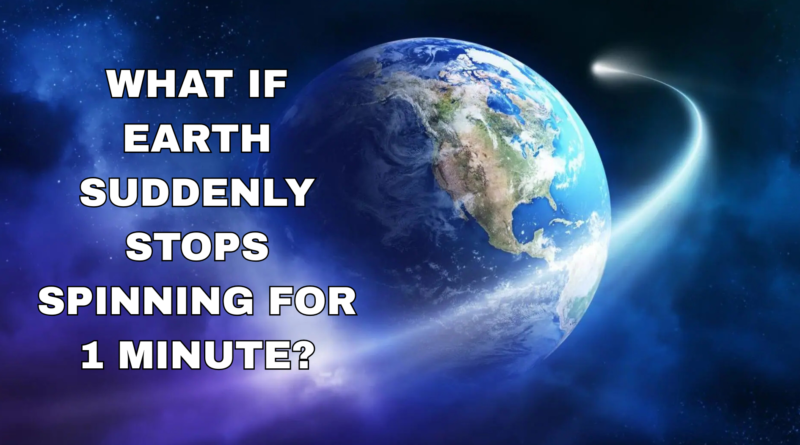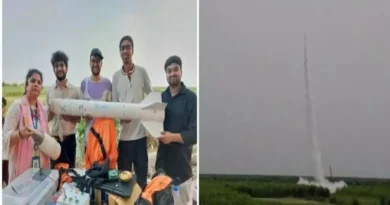WHAT IF EARTH SUDDENLY STOPS SPINNING FOR 1 MINUTE?
The Earth has been spinning nonstop for billions of years. Every 24 hours, it completes one full rotation, giving us day and night. This rotation happens smoothly at an incredible speed. At the equator, the Earth spins at about 1,670 kilometers per hour (over 1,000 miles per hour). We don’t feel this speed because everything, including the atmosphere, rotates along with the planet. But what would happen if Earth suddenly stopped spinning, even for just one minute? The thought may sound like science fiction, but the consequences would be beyond imagination.
The Sudden Jolt
If Earth stopped spinning instantly, everything not firmly anchored to bedrock would continue moving at the same speed the Earth was spinning. Imagine you’re sitting in a car traveling at high speed, and the car suddenly stops. You would be thrown forward violently. Now multiply that by the Earth’s rotation speed—more than 1,000 miles per hour at the equator. People, animals, vehicles, and even oceans would be flung forward. Skyscrapers could collapse, trees could be ripped from the ground, and entire cities might be destroyed.
Airplanes in the sky and ships at sea would also be thrown off course. Basically, life as we know it would face chaos in seconds.
Winds Stronger Than Any Storm
The atmosphere doesn’t stop when the Earth does. Air would still move at rotation speed for that one minute. That means hurricane-force winds would sweep across the planet. These winds would be stronger than anything humans have ever seen. They could flatten buildings, uproot forests, and carry debris for miles.
At the equator, the winds would be the fastest and most destructive. Near the poles, where Earth’s spin is slower, the effect would be less violent but still dangerous.
Oceans on the Move
The oceans are also affected by Earth’s rotation. If Earth stopped, even briefly, the water in oceans and seas would surge forward with unstoppable force. Tsunami-like waves would flood coastlines, washing away cities and towns. Ships would be lifted and smashed onto land. Low-lying countries would face unimaginable destruction.
After one minute, when Earth started spinning again, the water would try to settle back, but the damage would already be done. The massive waves could continue for hours or even days, reshaping coastlines.
Earthquakes and Volcanoes
The sudden stop could also disturb Earth’s crust. Our planet’s interior is always under pressure. If that balance is disrupted, earthquakes might erupt worldwide. Volcanoes could become active as underground magma shifts. Areas already prone to earthquakes, like Japan or California, could see catastrophic damage.
Even places that rarely experience quakes could feel the ground shaking. The sound of the Earth itself might roar like thunder as tectonic plates adjust to the violent halt.
The Sky Would Change
We don’t often think about it, but the stars and sun appear to move because Earth rotates. If the Earth stopped, the sky would suddenly freeze. The sun would stay stuck in the same spot for that one minute. If it was sunrise in your city, the sun would hang there without moving. At night, the stars would stop twinkling across the sky.
For astronomers, it would be shocking. For everyone else, it would be strange and frightening—like time itself had paused.
What Happens After One Minute?
After the minute ends, Earth would begin spinning again. But restarting would not be gentle—it would be another violent jolt in the opposite direction. Everything that was thrown forward would now be dragged back. This second shock could cause just as much destruction as the first.
Buildings that survived the initial impact might collapse. People who managed to hold on would be flung in the opposite direction. Fires could start from wrecked power plants, and communication systems would fail. The world would be left in ruins.
Could Anyone Survive?
Survival would depend on location. People near the poles, where rotation speed is slower, might have a better chance. Being underground or in a reinforced structure could also help. But for those living near the equator, survival would be almost impossible.
Even if some survived the initial catastrophe, the aftermath would bring new challenges: destroyed infrastructure, lack of food and water, disease outbreaks, and climate disruption. Humanity would face one of its greatest survival tests.
Lessons from This Thought Experiment
While Earth suddenly stopping is impossible under natural conditions, thinking about it teaches us how much we depend on the planet’s steady motion. The rotation not only gives us day and night but also stabilizes life in countless ways. The balance of winds, tides, and even the way we live daily is linked to Earth’s spin.
This scenario also reminds us of how fragile life is on a cosmic scale. A planet-sized event could end everything we know in moments. It makes us appreciate the stable environment that has allowed civilizations to grow for thousands of years.
Final Thoughts
If Earth ever stopped spinning for even one minute, the results would be catastrophic. People and objects would be thrown forward at unimaginable speeds, winds would roar like monsters, oceans would rise as massive waves, and the ground would shake with fury. Life as we know it would change instantly, and survival would be slim.
Luckily, science tells us that Earth will not suddenly stop spinning. Its rotation is slowing down gradually over millions of years, not minutes. Still, imagining such a situation shows us just how delicate our world is—and how grateful we should be for its smooth, constant spin.




